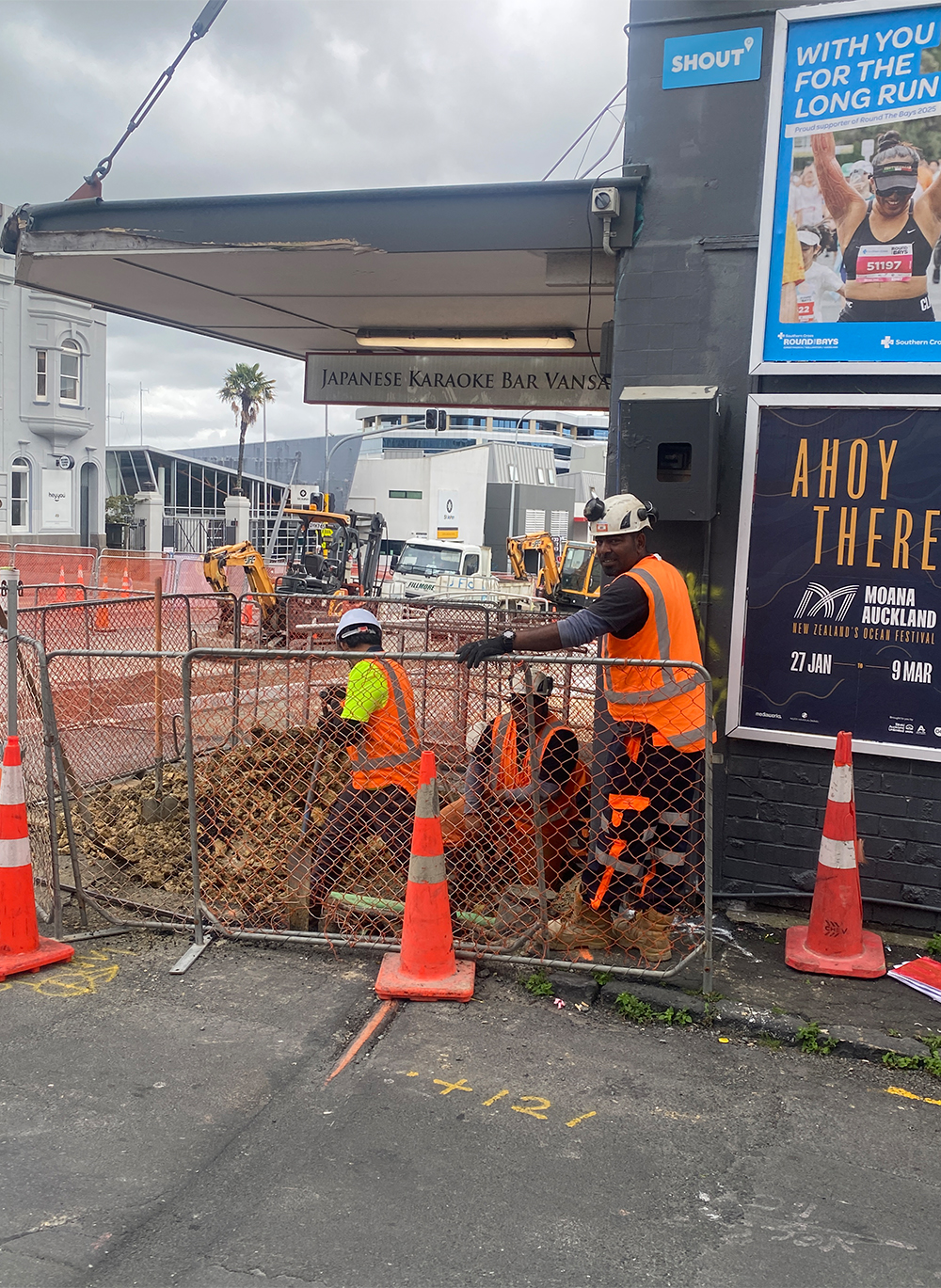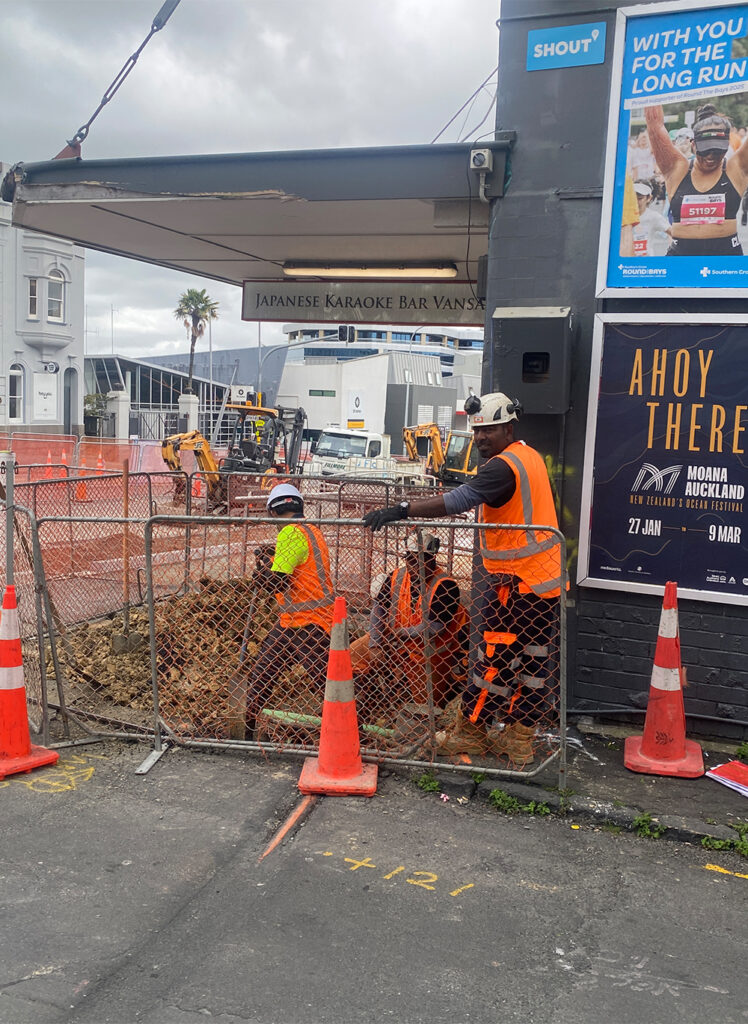

Full Noise
February 20, 2025
Sarah Daniell recently moved from the suburbs to the inner city in Auckland. In an occasional column she writes about discovering new noises, neighbours and a different place – and way – to live.
I wake early each morning to the sound of the city being eaten by a monster, grinding its metal teeth on concrete and asphalt, gnawing into my dreams.
They’re digging up the pipes on Pitt St, in Central Auckland. Pneumatic drills, generators and concrete compactors in a frenzy of industry oblivious to the concept of a timeline. It’s the long game and it can be a drag.
Having a 1010 postcode means taking all that comes with that: Walk to Uncle Mans for a curry, look in the window at the Green Dolphin bookstore and admire, from a safe distance, all the records in Flying Out Records. I buy a secondhand turntable. ‘Uh-oh Sarah,’ says a friend laughing, ‘so, you’re going to become a heroin addict.’ Such is the pull of vinyl.
I inherit many of my parents’ records – Louis and Ella, Ernest Raglin, the Beatles, Neil Diamond, Carole King – among others that didn’t age well (Bill Cosby standup). I leave them with a boyfriend when I go travelling again in my late 20s. We break up and I never see that box of vinyl again. It’s the way it is, of moving on; leaving both people and places.
And so I start again, from scratch, and I sit in the noise. Sirens, people, laughter, protest, music. Two bars across the road play disparate music to Friday after-work drinkers. Don’t Walk Away Renee collides with some bad House music and becomes a discordant soundtrack.
There are times when nothing but quietness and light prevails. Like when Te Mārama is full-noise, beaming into my room, casting shafts of silvery light over my bed. I get up and go outside to stare at her and I sit, letting the silence wrap around me like a blanket.
I’m reminded, living here, that it’s much a lesson in tolerance as it is of human adaptability.. How quickly the shock of the new becomes the norm. How quickly we can transition to a sense of belonging.
When I walk to work or scope the neighbourhood, the workers are there; an army lining the street, looking for hidden clues under the surface of the road, drilling, digging. They wear head-to-toe orange safety gear in the full noise of the sun and they keep their humour. We chat. They have no clue when it’ll all be over. Who knows?
But they work every day except Sunday. I head out for Saturday brunch with my friend, who’s visiting from Seattle. ‘How long do you reckon this will take?’ I ask one of the workers. ‘Ah, a few months,’ and his voice goes up at the end of the sentence which makes it sound like a question because it’s unlikely he knows the answer either.
We chat, have a few laughs, and my friend and I head off in search of good coffee and she says, ‘You couldn’t have that conversation in America. You would never do that.’

Workers at Pitt St grafting on the final stages of road improvements which will include gardens, walkways and new pathways.
‘Weird,’ I say. ‘Why not?’ She used to talk to randoms; less so now. At her bus stop a woman is killed in a random drive-by shooting. Her husband stands outside their apartment having a cigarette. She’s inside and suddenly there’s the sound of gunshots. She ducks down from the window. The car with the people firing the gun drives on and no one, including her husband, fortunately, is injured. ‘You never get used to that noise,’ she says.
In her US hometown, ICE is raiding Seattle restaurants and deporting immigrant labour. Those who help make that city so diverse and vibrant, who call it home; those who do the labour that no one else wants to do, are marched out and on.
I want to tell her that it’s not all sweet conversations with strangers on the street, and that we have our problems, too, in Aotearoa. She knows that too. But she has become accustomed to her new life in ways, good and bad, she might never have imagined. In the ways you do when you have to adapt. She’s making a staunch effort, she says, to practice pro-unity ‘as that’s what’s needed’.
And I put a record on and turn up the volume.
